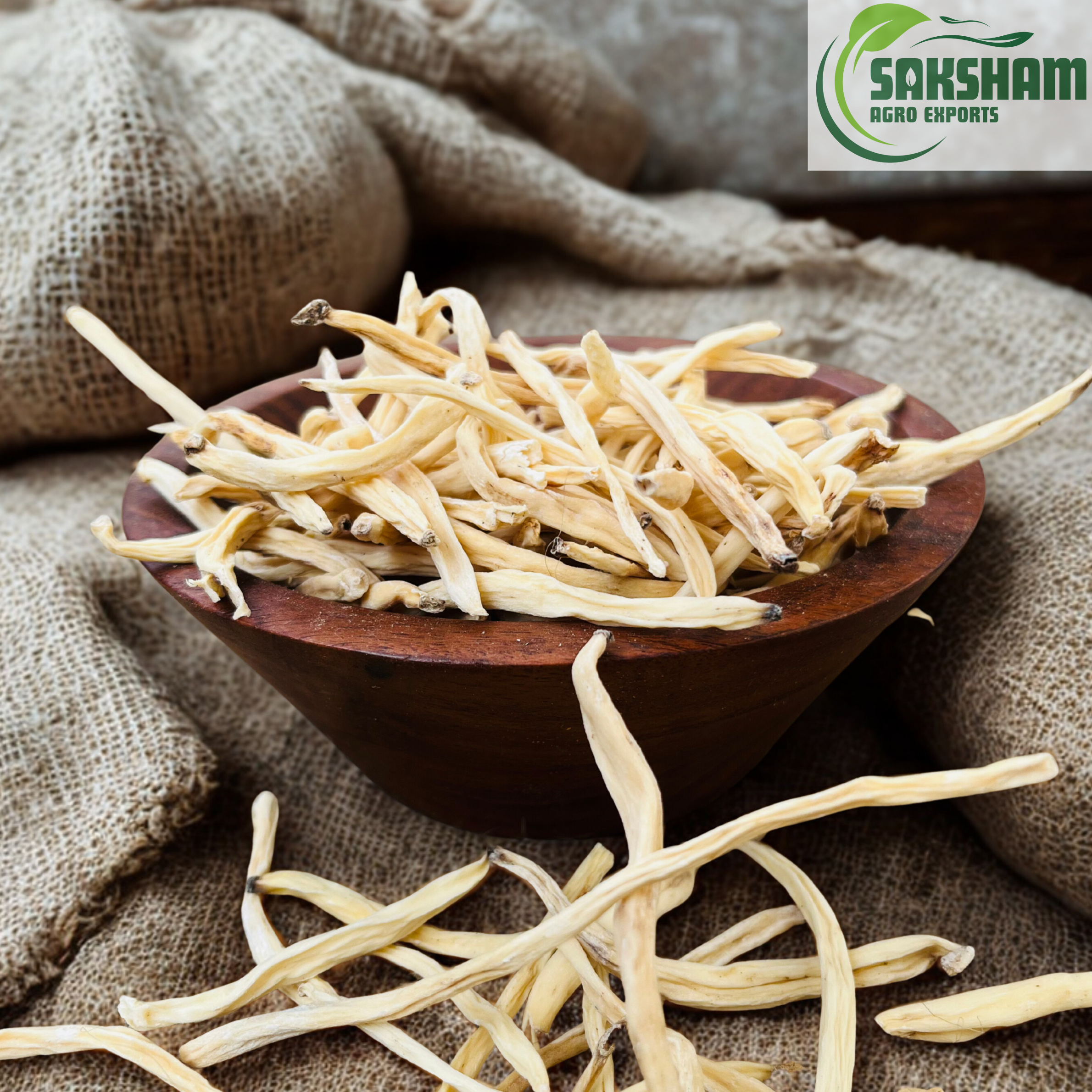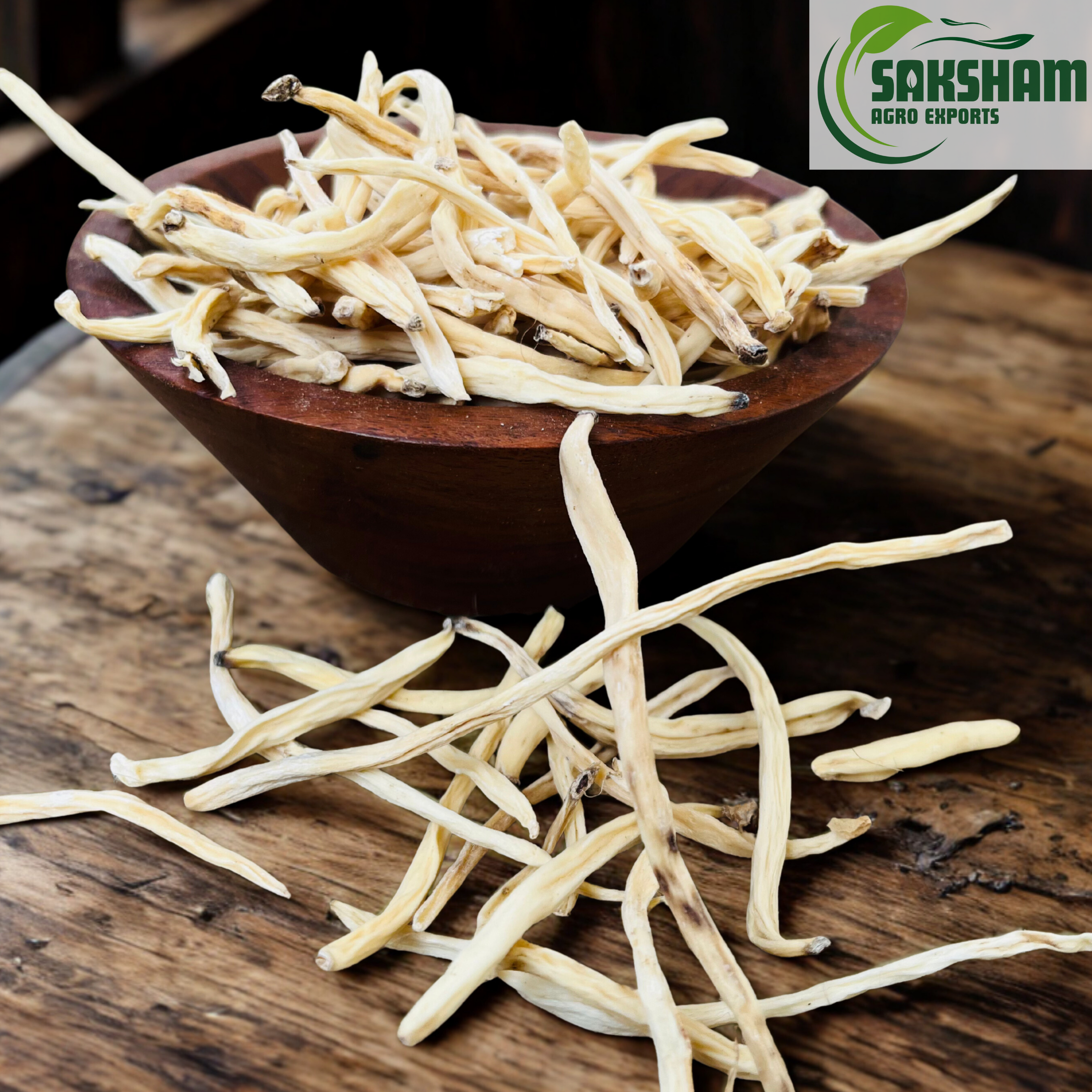Safed Musli (Chlorophytum borivilianum)


Explore Our Range!
Scientific Name
- Chlorophytum borivilianum (most widely used medicinal species)
- Other related species: Chlorophytum tuberosum, Chlorophytum arundinaceum
Common Names
- English: Safed Musli, White Musli
- Hindi: Safed Musli
Description
Safed Musli, scientifically known as Chlorophytum borivilianum, is a herb native to India and highly regarded in traditional medicine as a natural aphrodisiac and rejuvenator. Its roots are rich in alkaloids, saponins, and polysaccharides, contributing to its medicinal value. it is widely used to improve stamina, boost immunity, enhance reproductive health, and support overall well-being.
Health Benefits
It is considered a Rasayana (rejuvenating herb) in Ayurveda, Unani, and Siddha medicine:
- Boosts Fertility – supports reproductive health in men and women.
- Enhances Immunity – increases natural resistance against diseases.
- Strength & Energy – used as a natural tonic for weakness, fatigue, and post-illness recovery.
- Anti-diabetic – supports blood sugar regulation.
- Weight Gain & Muscle Growth – used in Ayurvedic formulations for athletes and bodybuilders.
- Cardiac Health – supports heart function and reduces cholesterol.
Usage
- Medicinal Preparations
- Powder (Churna) – taken with milk or honey as a daily health tonic.
- Capsules/Tablets – standardized extracts for vitality and energy.
- Lehyam (Herbal jam) – combined with ghee, honey, and other herbs as a rejuvenator.
- Traditional Ayurvedic Use
- Prescribed in male infertility, sexual weakness, arthritis, and general debility.
- Used as an ingredient in formulations like Musli Pak, Chyawanprash, and various Rasayana tonics.
